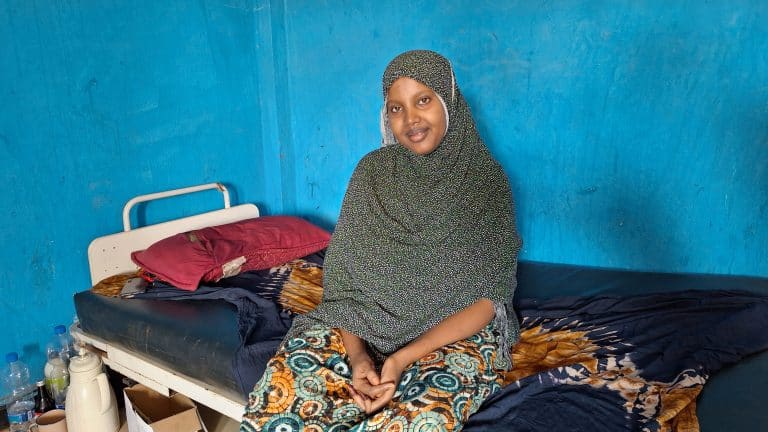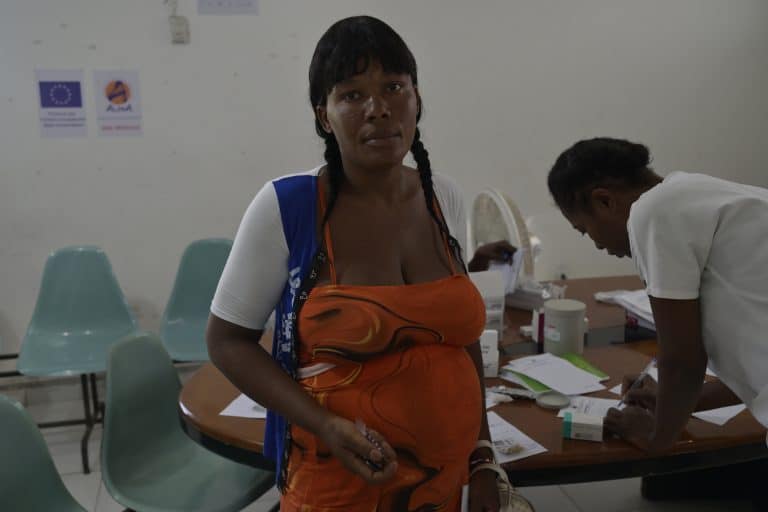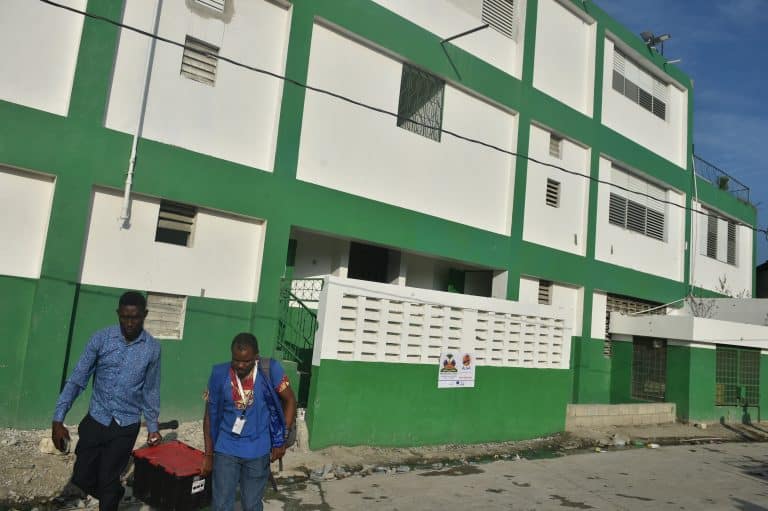This wasn’t her first time giving birth, but this time she experienced complications. By the time her neighbors brought her to the Mother and Child Health center (MCH), she had already lost a lot of blood. Doctors had to perform an emergency caesarean section to save her life, since she had already lost her unborn child. As she was rushed into the operating theater, Maimuna was in urgent need of a blood transfusion.
Fortunately, a few months earlier, ALIMA (The Alliance for International Medical Action) had opened a blood bank at MCH, where people can come to donate blood and where blood is then stored for emergency transfusions.
“I was unconscious when neighbors took me to ALIMA’s clinic,” Maimuna recalls. “They had to operate on me urgently. I needed 4 bags of blood. It saved my life. I’m really grateful because no money could do that. You have to give blood.”
Maimuna is just one of 112 people who have so far benefitted from the blood bank at the MCH supported by ALIMA, which is currently the only one in the city of Monguno. Monguno is now home to more than 200,000 people, including 130,000 internally displaced persons (IDPs) who were forced to flee due to the ongoing violence.
“One of the major needs we kept seeing in the MCH was the need for a stock of blood to better care for pregnant women who suffer from complications during childbirth and anemic children,” said Abba Suleiman Muwaffaq, ALIMA’s blood bank laboratory technician in Monguno. “This is particularly important during medical emergencies, when time is of the essence because it can sometimes be difficult to find a match in time to save a patient.”
According to the World Health Organization, globally, approximately 70,000 women die each year from postpartum hemorrhaging.
Unfortunately, many people in Nigeria are still apprehensive when it comes to blood donation, a factor that contributes greatly to poor blood donation practices. This apprehension is fuelled by religious, spiritual and superstitious beliefs. Many fear they will get sick or die if they donate blood. There are also rumors within the camps that donating blood will make men impotent. Most people only agree to give blood when a family member or close friend is in urgent need of a transfusion, making it difficult for hospitals and clinics to build up stocks. In a race against time, this puts the patient’s life at risk.
Before the blood bank opened, to help dispel some of the taboos surrounding blood donation, ALIMA teams, in partnership with local health authorities and community leaders, began engaging in public education campaigns within the IDP camps and community, explaining to people, in several languages, the importance of blood donation, how the process works, and demystifying the myths around blood donation.
Thanks to these sensibilisations, 43 of the nearly 200 people who have donated blood since the blood bank open in May 2018 have become regular donors. Each donor is screened and their blood is tested to ensure they are in good health. And, because there is no electricity in Monguno, the blood is stored in special refrigerators that are powered 24 hours a day by generators, to ensure proper conservation.
“It is necessary to give your blood, save lives,” says Auwal, the youth leader of an IDP camp in Monguno, who publicly encourages people, particularly young people, to donate blood. He reassures his community: “Since I gave my blood, I am in full health, I am strong.”
<br
_____
ALIMA (the Alliance for International Medical Action) is a humanitarian medical organization that works hand-in-hand with a network of local medical organizations to provide quality health care to the most vulnerable people in emergencies and crises chronic. Based in Dakar, Senegal, ALIMA has treated more than 3 million patients in 12 countries since its creation in 2009, and launched 10 research projects focusing on malnutrition, malaria and the Ebola virus.
In Nigeria, where ALIMA has been active since July 2016, medical teams run health clinics for IDPs and host community members in Muna and Monguno, where children under 5 receive free primary health and nutritional care, and run a mobile clinic in the Bakassi host community. Pregnant women benefit from free pre- and post-natal care, as well as assisted deliveries, in Monguno, as part of a Sexual and Reproductive Health program. At the University of Maiduguri Teaching Hospital, ALIMA supports a 30-bed Therapeutic Feeding Center, and implemented a training program that teaches health workers to care for children suffering from severe acute malnutrition (SAM) with complications. In 2017, ALIMA treated more than 11,000 children for severe acute malnutrition, performed more than 77,000 consultations and trained 23,000 mothers to screen their children for malnutrition using the MUAC bracelet.
The blood bank and other activities in Monguno are made possible thanks to funding from the Office of US Foreign Disaster Assistance (OFDA/USAID), the European Commission’s Civil Protection and Humanitarian Aid department (ECHO) and the Delegation of the European Union (DEU).





